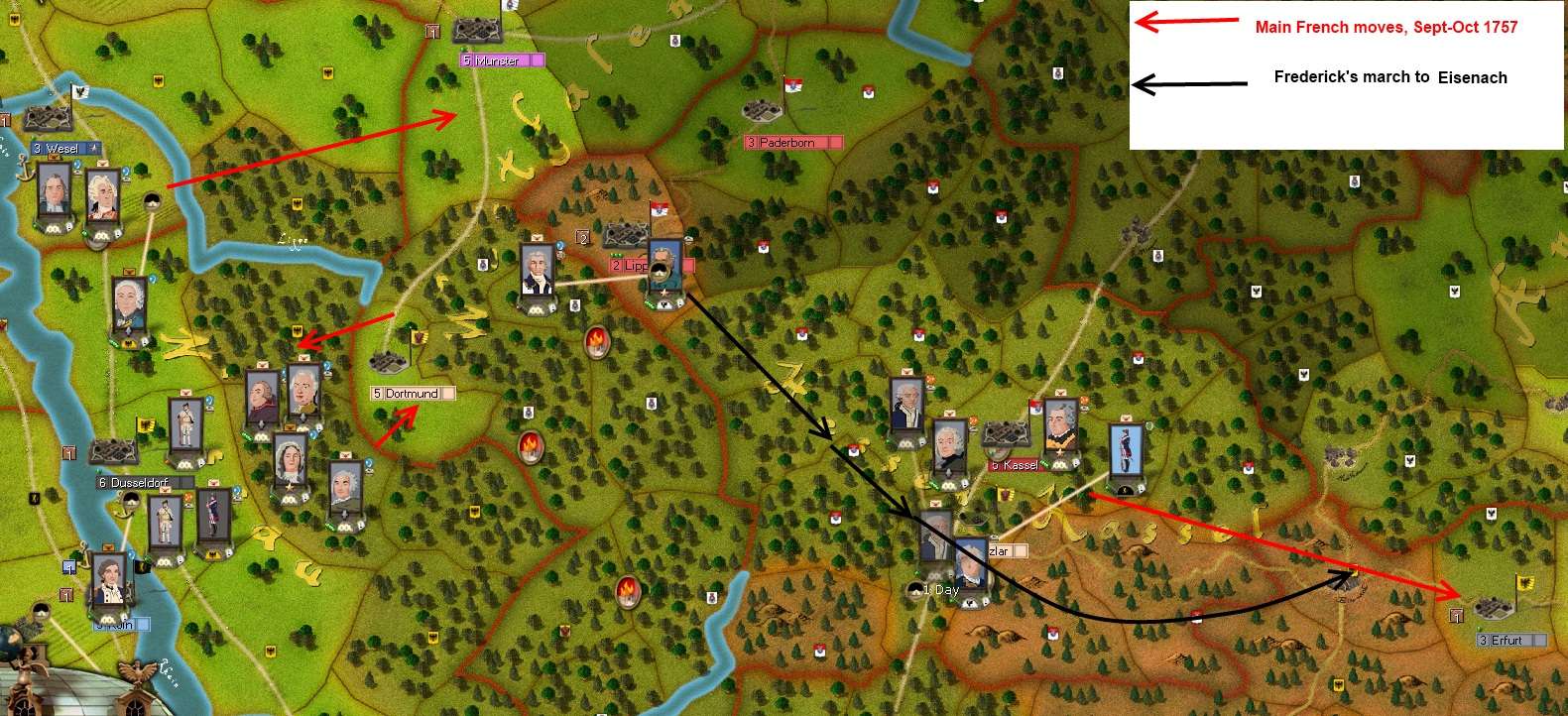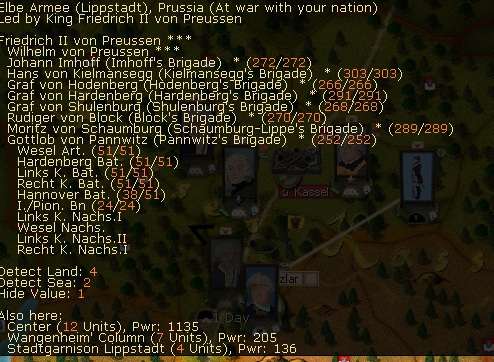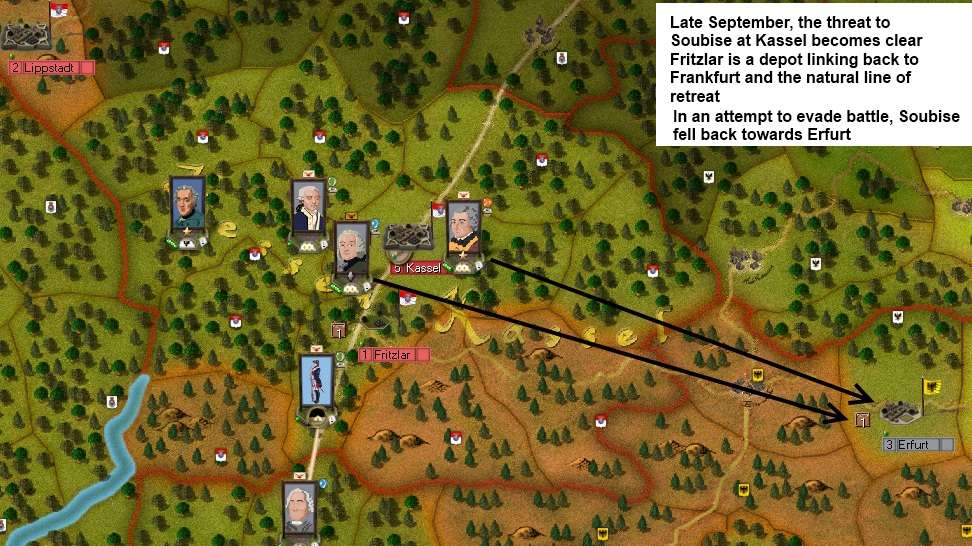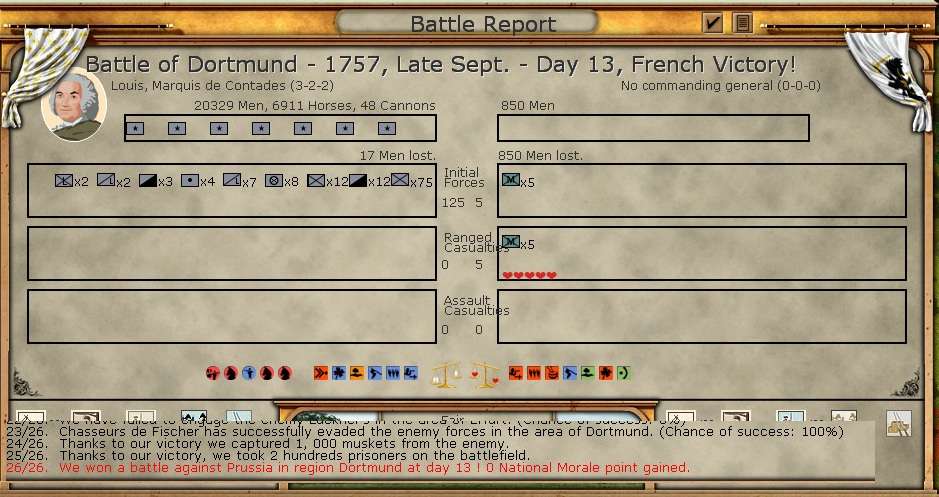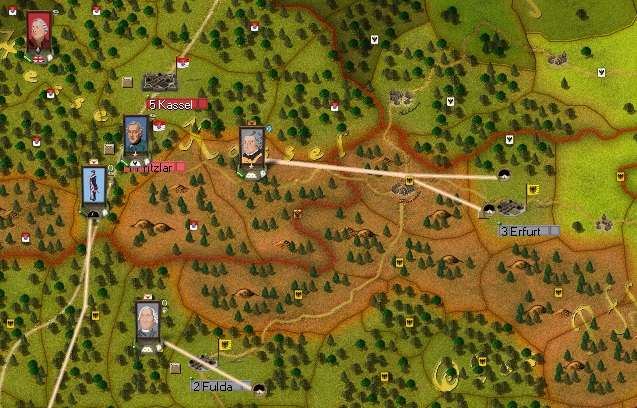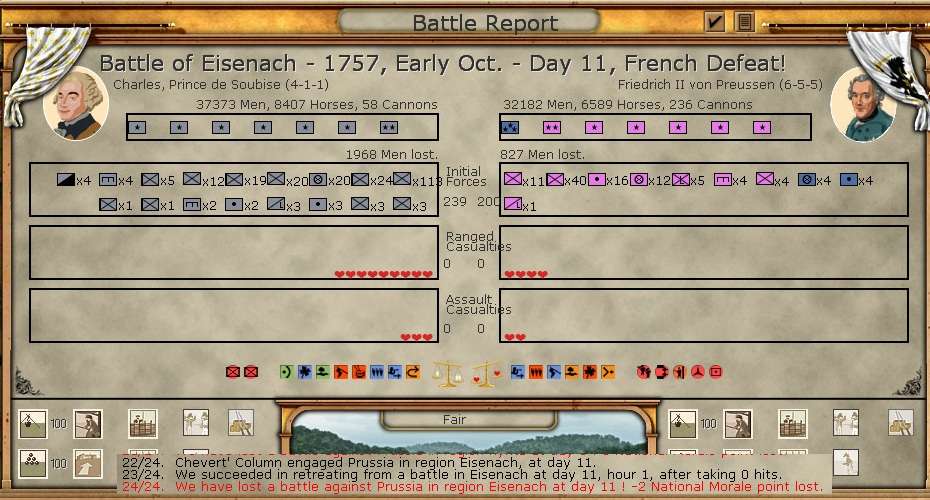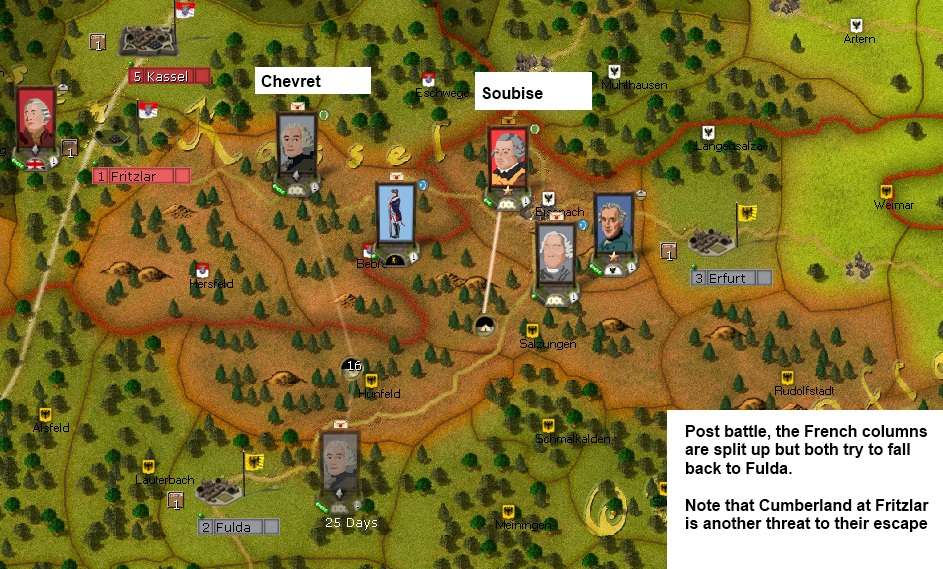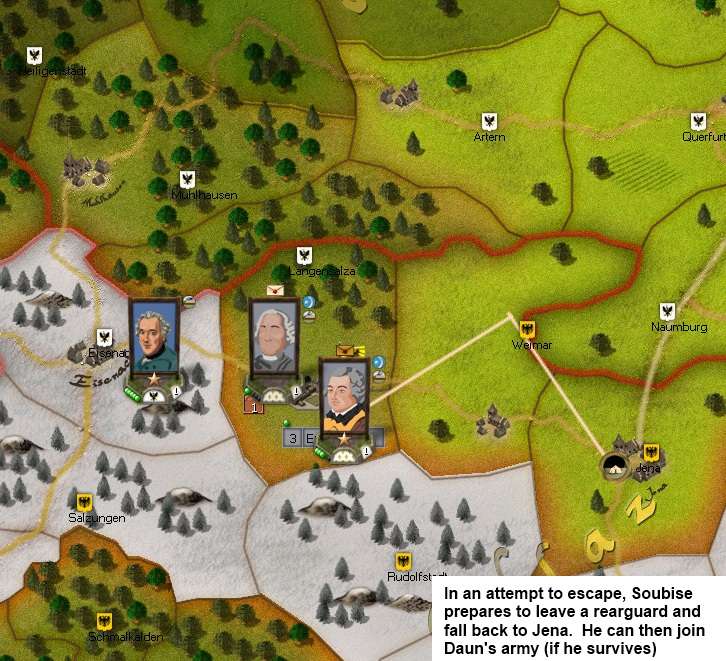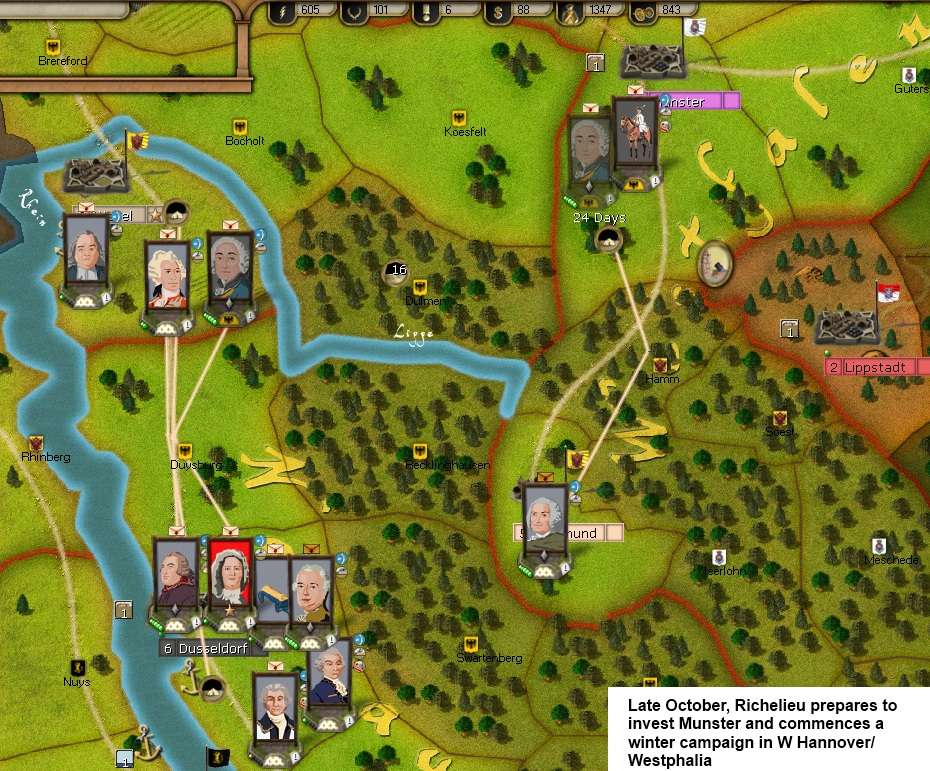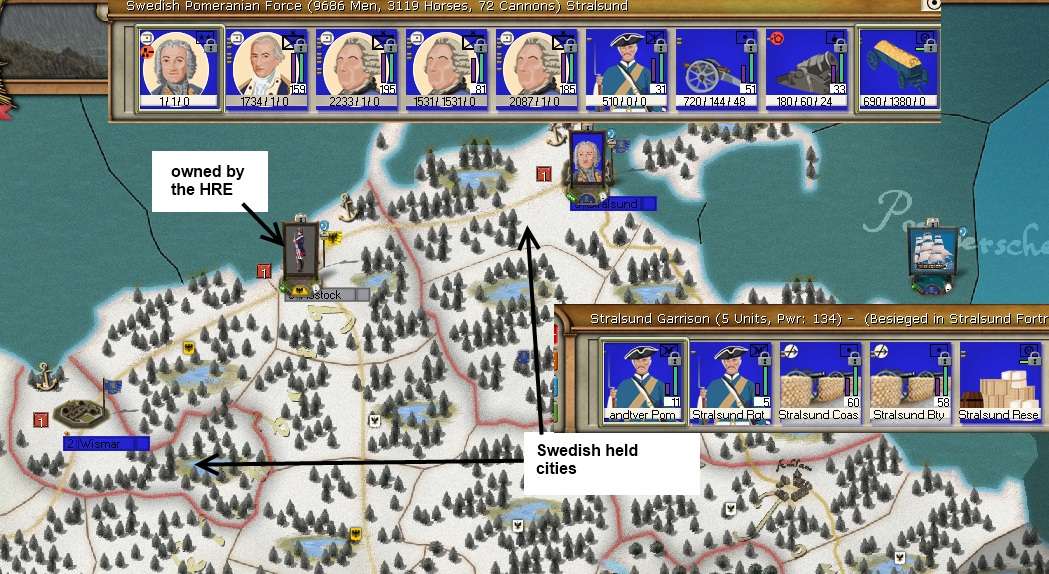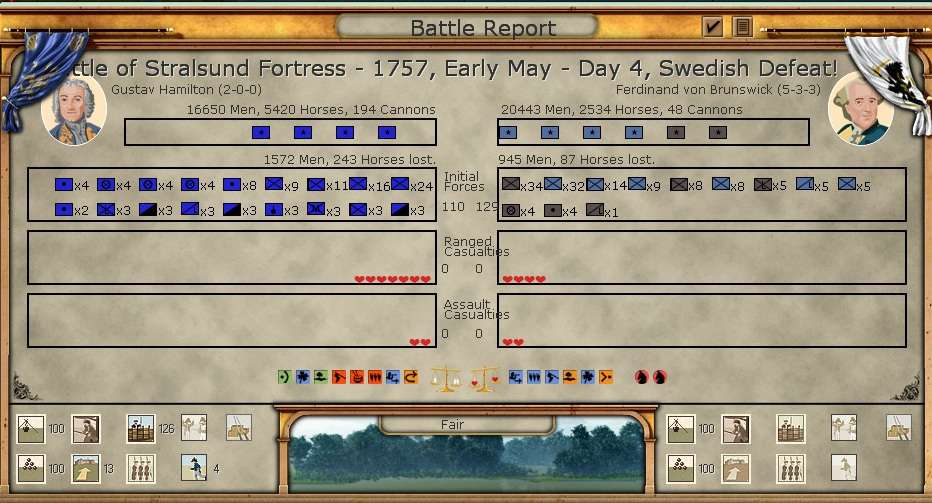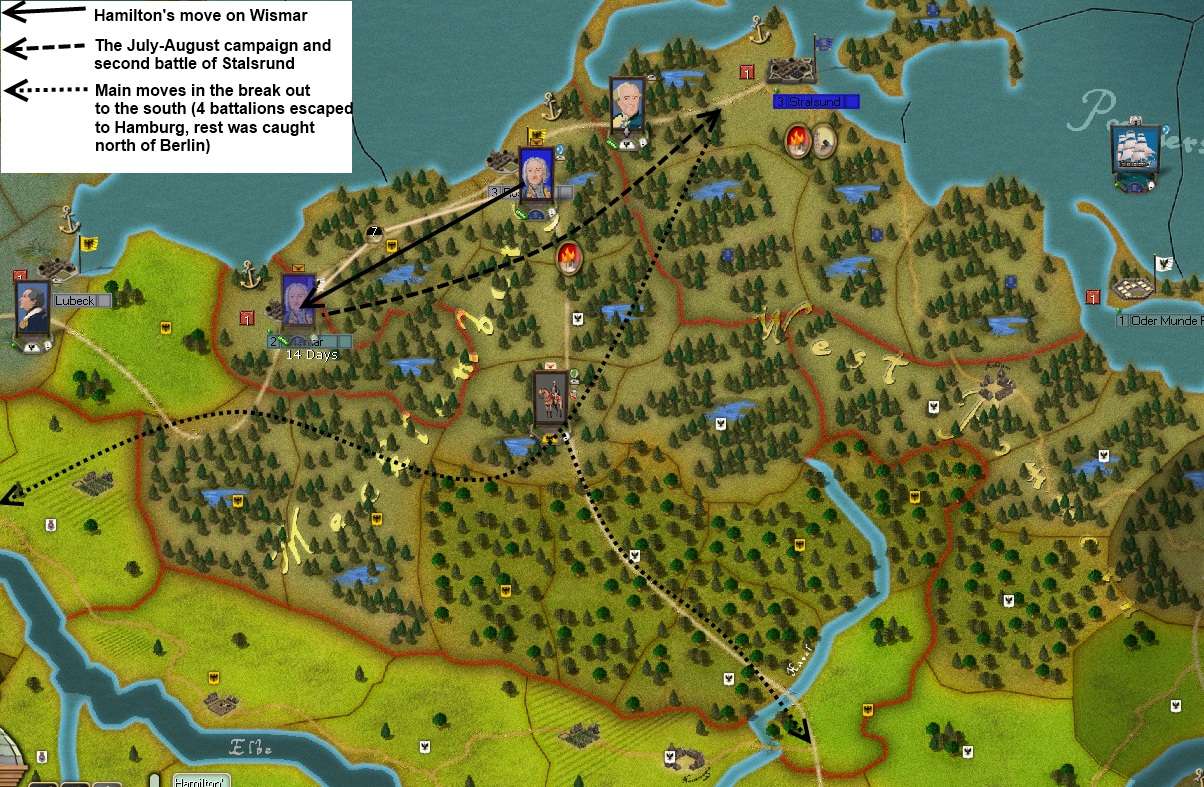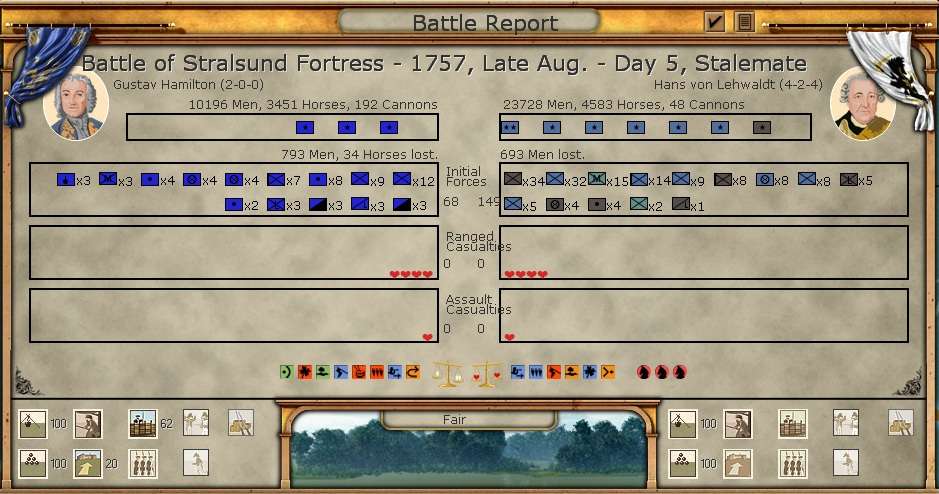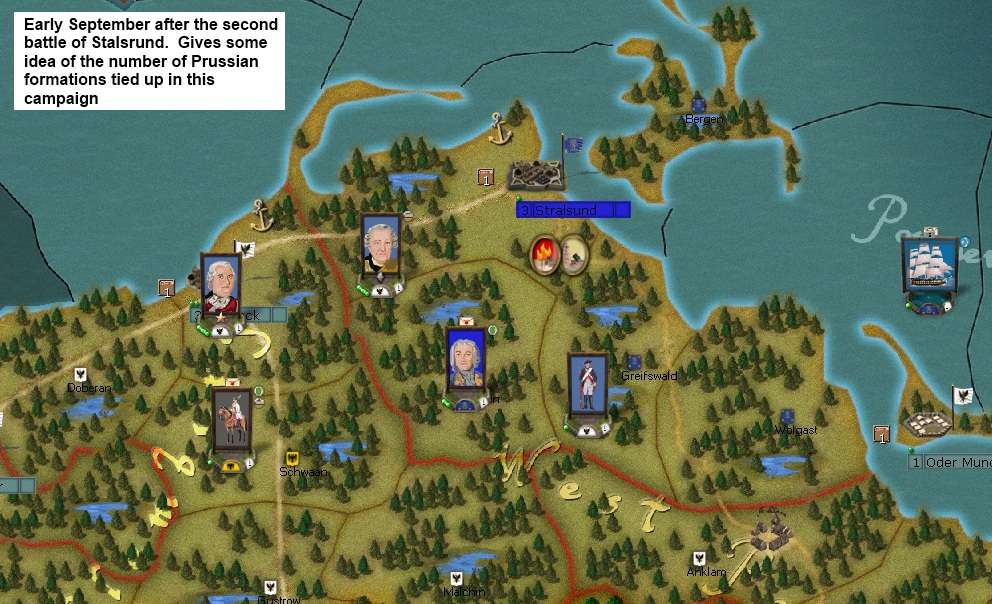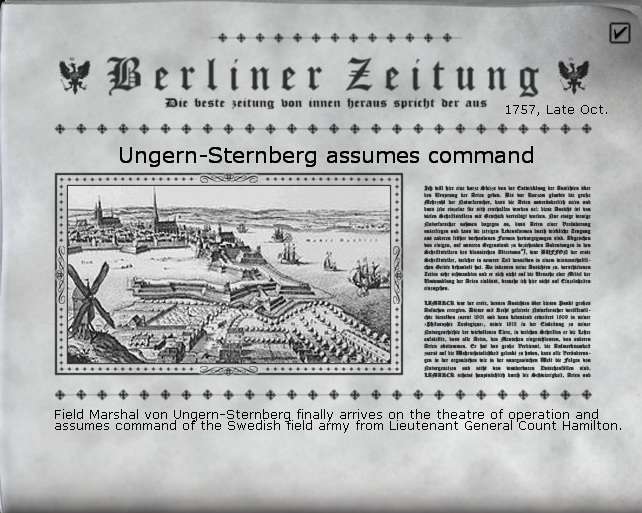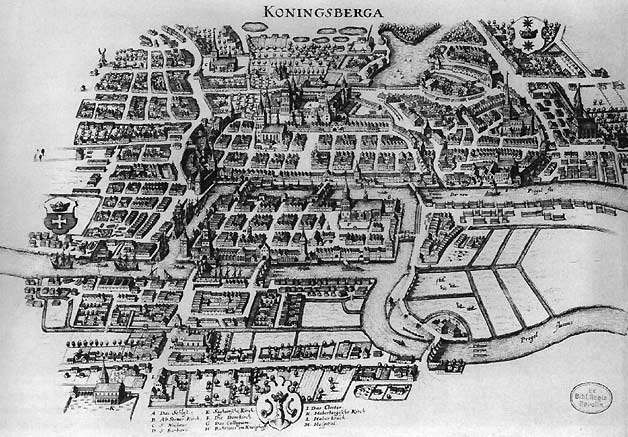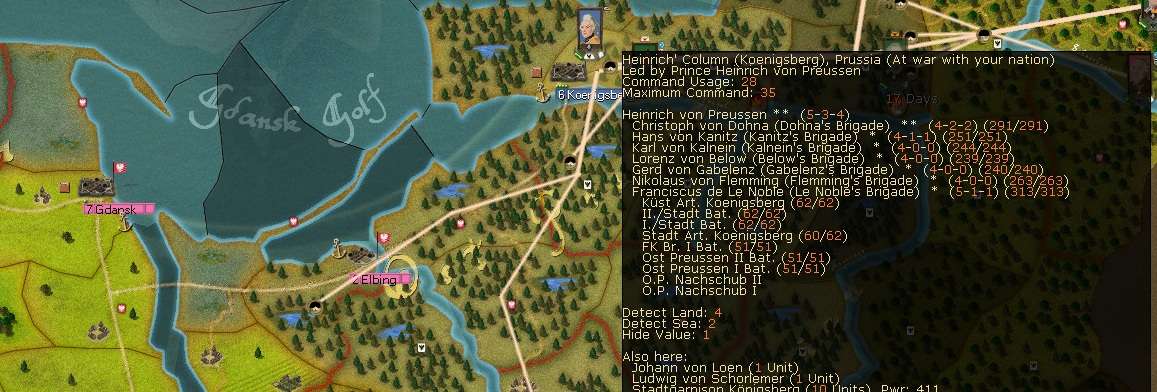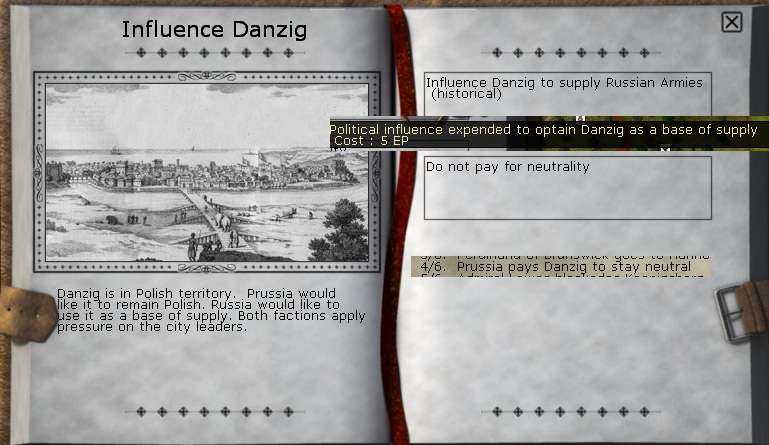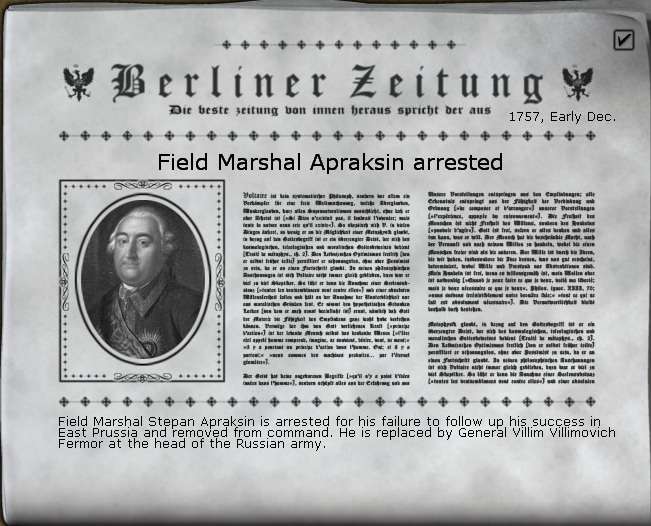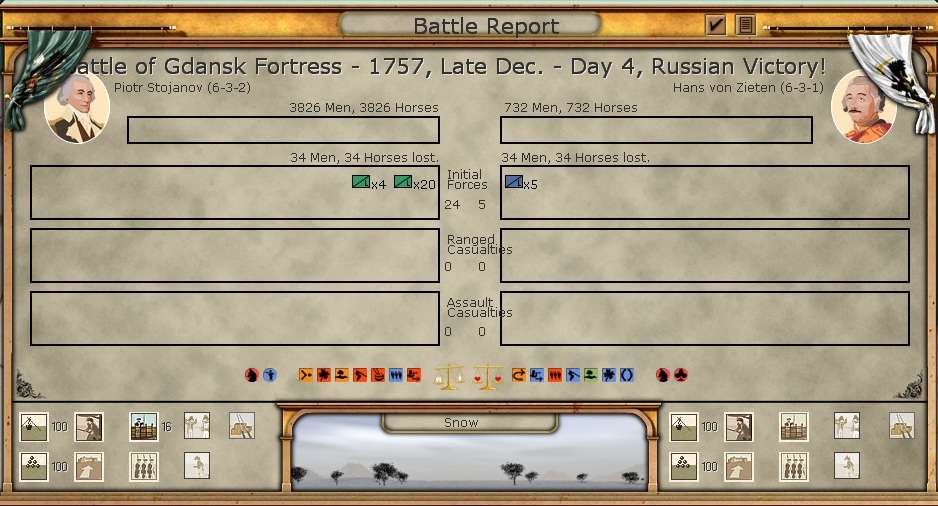Manoeuvre and feints, rather than all-out battle. At least you took Dortmund - temporarily. Shame you didn't have the 'special matches' available.
the Rhine front, seems to remain one of threat and siege rather than major battle. We've just reached early spring 1758 and the first set piece battle may be developing, but it seems that for different reasons, neither of us is looking for a decisive battle here (at the moment)
never fear about the matches, we need to go north after the next update and you'll be pleased to know that the Cossacks are doing the traditional Russian thing of burning down East Prussia
Having read the last two updates I see what you mean, some very tense stuff as both forces are attempting to outmanoeuvre one and other. With things so tense and this having becoming a campaign of manoeuvre I simply hope you have the Jaws music playing in the background!
I did indeed, it was a hell of a shock to see Frederick pop up there, imagine the final boat scene and you have captured my panic. But yes, this front is one of manouvre, the north one of (apparent) stalemate and the Austrian one of bloody battles.
This AAR makes me want to play RoP again.
Your plans with the French for 1757 seem a bit conservative. Muenster is the bare minimum. It is possible to take Minden and Hannover in the first year. It all depends on you out-maneuvering your opponent.
If I may play the armchair general here:it seems a bit over-cautious that you retreated as soon as Friedrich showed up. I can't imagine he brought any troops with him (the way from Slesia is too long). His mere presence will affect the combat performance of his troops but you are still superior on this front. Moreover, it is to be expected that some first rate Prussian three star gets dispatched to the West (I usually use Keith or Heinrich if he already got a promotion).
If the Prussians want to gain time/space, they should have to fight for it (or at least commit some troops not just generals). Judging from your screenshots, you should have been able to repel a Prussian attack at Dortmund. But I doubt Narwhal would have risked it, he is aggressive, not suicidal (most likely this was a bluff, he never intended to attack, he just wanted to scare you into halting your advance). Besides, him attacking you instead of you having to attack him is something you might want to encourage. It's the most efficient way to deplete the Prussian army.
I think you are right in that I am being very cautious. I'm up to something in E Prussia that if I pull it off will get me both Koenigratz and the Russians at Kolberg, but it will take time. My whole mindset in 1757 was that I can't win the war in this year, but I could lose it, if one of my major armies gets ripped to pieces. Come 1758, I plan basically just to swamp the Prussians, there are potentially 5 theatres of war - E Prussia, Oder, Saxony, Pommerania and the Rhine, and I can put decent forces into all of them, Narwhal can't. He can blunt me in 1 or 2 but my hope is to steadily take fortresses and constrict his space to move. At some stage, one of those theatres will merge (say if I get Hannover) into a concentrated threat, with him boxed in around Berlin (this is my fantasy version, I realise he has no intention of co-operating).
So to me, if I'd split the Armee Francaise into its corps and run for Minden then I risked a defeat in detail (or winning big), and, at this stage of the game, I'm not really minded towards gambling. The value of my basic assumption completely depends on the Russians and as we all know, Narwhal is good at building a solid defense at Koenigratz.
Having made all those excuses, you are right, I shouldn't have abandoned Dortmund (my excuse is that a lot of those units had low cohesion due to the march from Brussels) and, yes, its Frederick in name only, as I find out he's leading Hannoverian troops.


